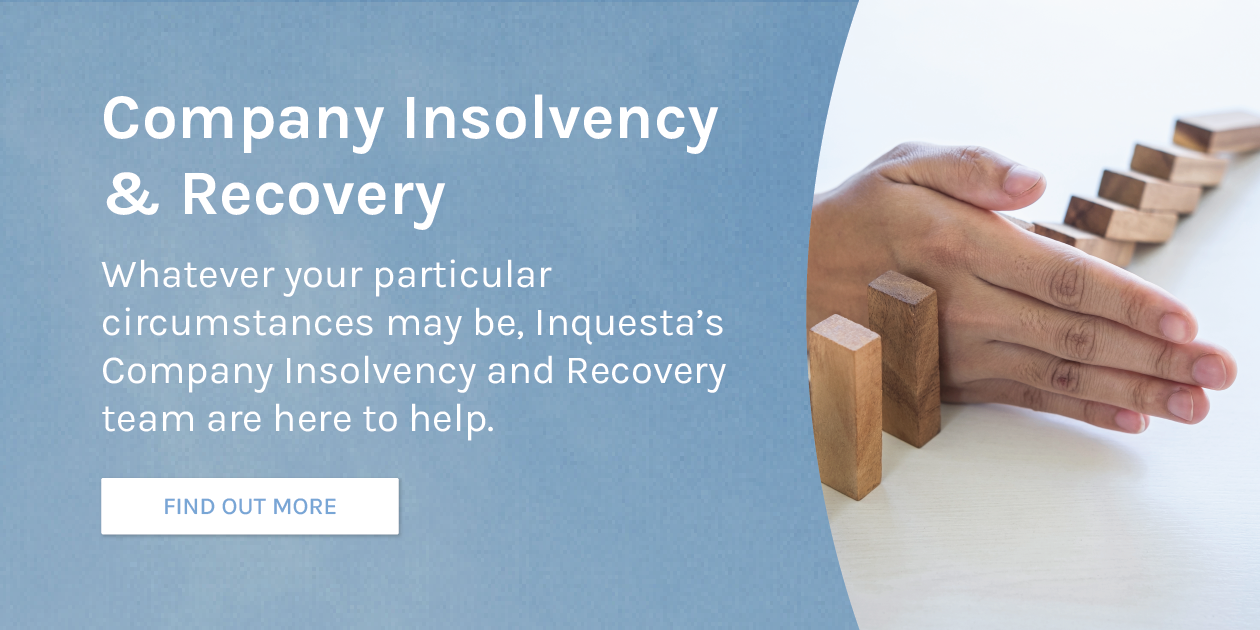The Only Guide for Insolvency Practitioner
The Only Guide for Insolvency Practitioner
Blog Article
Fascination About Insolvency Practitioner
Table of ContentsAll About Insolvency PractitionerThe Best Guide To Insolvency PractitionerThe Greatest Guide To Insolvency PractitionerLittle Known Facts About Insolvency Practitioner.The Ultimate Guide To Insolvency Practitioner
Whether or not you require to use a bankruptcy specialist (IP) to liquidate your business depends on various variables. While involving a bankruptcy specialist for all forms of liquidation is not a legal requirement, doing so can typically enhance the procedure and make sure conformity with lawful needs. Liquidating a firm is a vital choice that comes with considerable repercussions.
It is a treatment used when a firm does not have any type of financial institutions, or all of their creditors can be settled completely with statutory rate of interest. Understanding the different types of bankruptcy procedures can help you figure out the most effective program of activity for your business's liquidation or other formal insolvency treatments itself.
This is compulsory in order to abide by legal demands - Insolvency Practitioner. This is because IPs have the necessary qualifications and experience to guarantee that the liquidation process is performed based on all applicable regulations and laws. By engaging a certified insolvency expert, you can have satisfaction recognizing that your company's liquidation process will be taken care of skillfully and in conformity with the appropriate lawful needs
Insolvency Practitioner Fundamentals Explained
The insolvency professional is designated as a liquidator and is accountable for managing the business and liquidator's financial debts exceptional responsibilities and properties. This process includes selling the company's assets and dispersing the proceeds to financial institutions. Upon conclusion of the process, the firm is removed from the register at Business Residence.
Stopping working to do so can lead to personal obligation for the business or director for the lender's financial obligations. Voluntary liquidation, that includes Financial institutions' Voluntary Liquidation (CVL) and Members' Voluntary Liquidation (MVL), is started by the firm's supervisors and investors when they can no more pay their financial obligations. In a CVL, the insolvency professional is marked as the liquidator, in charge of taking care of firm financial obligations and all firm assets.

Some Known Facts About Insolvency Practitioner.
By assessing the knowledge and experience of possible insolvency specialists, you can make sure that you choose a professional that possesses the required credentials to handle your business's liquidation process successfully. While insolvency practitioner-led liquidation is usually the most suitable strategy for companies encountering insolvency, there are alternative techniques to consider, such as striking off and partial liquidation.
It's necessary to examine all available alternatives prior to selecting the following best solution or program of activity for your business. Striking off companies' registers is a much more straightforward and cost-efficient means to close dormant or small firms without any financial obligations or properties. To strike off a firm, its name is eliminated from the Companies Residence register by submitting form DS01.
Before selecting striking off, it's essential to consider the advantages and disadvantages of this technique and consider whether it's the right selection for your service. Partial liquidation is one more choice to bankruptcy practitioner-led liquidation, where a company sells off certain properties and obligations while remaining to run with the staying properties and obligations.
An Insolvency Specialist will certainly have the ability to recommend you of the most effective strategy to take and ensure that whatever runs smoothly. It is not feasible to liquidate a company without a liquidator. Selecting an authorised bankruptcy professional is necessary for the process of volunteer liquidation to start.
What Does Insolvency Practitioner Mean?
It is possible to shut and liquidate your firm without making use of a liquidator, provided your business is solvent and you meet the qualification requirements to liquify or liquidate it. Nonetheless, if your firm is financially troubled, you may be required to use a liquidator and begin official bankruptcy procedures. Right here are some various other insightful articles regarding company liquidation in the UK:.
Remaining in a setting where you're not able to pay your company's financial institutions is very stressful. In an effort to stay clear of boosting the degree of debt, several business attempt to discuss straight with their creditors and accept an informal setup. If the financial obligation is rather little try this out and owed to one financial institution, and the lender is being participating, participating in an informal financial debt arrangement is probably the best service, as opposed to searching the web for 'an insolvency expert near me'.
On the various other hand, if there are numerous creditors and the level of financial debt is huge, creditors may not be so prepared or participating. In order to avoid liquidation or personal bankruptcy, it is better to work with a bankruptcy professional to formulate formal proposals Full Report and work out with lenders on your behalf.
Facts About Insolvency Practitioner Uncovered
Whilst it is a means to manage debt, there are considerable threats included with this sort of financial debt arrangement - Insolvency Practitioner. If a creditor is willing to get in into an informal arrangement (IA) wherein the debtor has actually concurred to make normal, if reduced, repayments to repay the financial obligation, it is essential to stay with the arrangement

As a result, the financial institution is within their rights to back out of the arrangement and petition the courts for your firm to be sold off at any type of time. An official plan that has actually been suggested by a bankruptcy professional in your place, and agreed by a financial institution, provides a much safer option.
Report this page